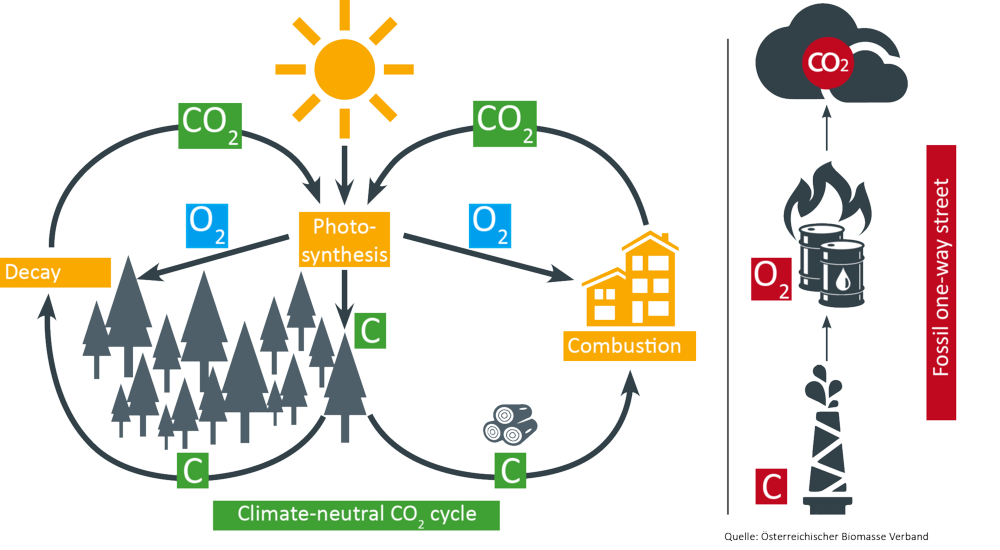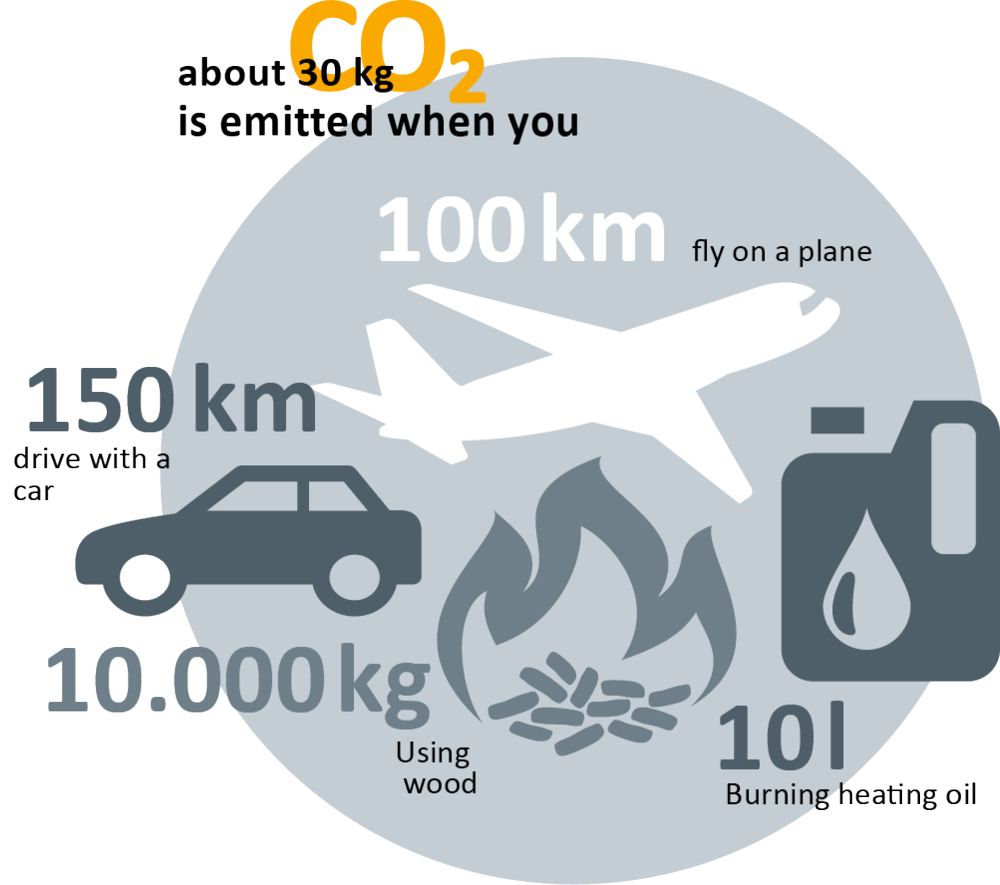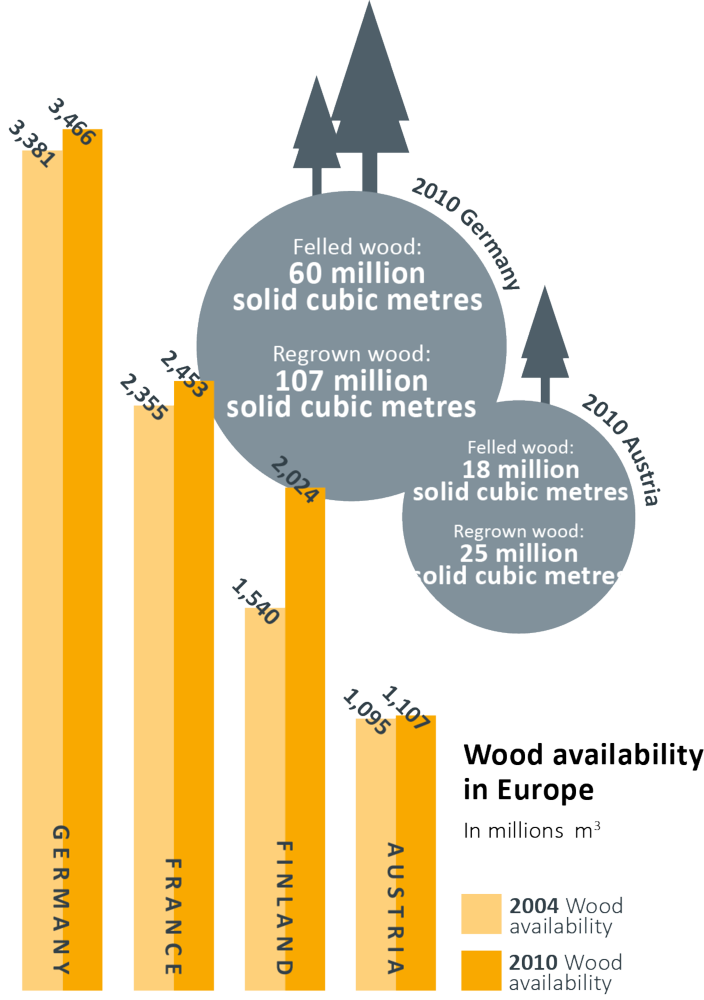Heating with wood
- fuels in comparison
- infos über biomass
- Pellets
- logs
- wood chips
Heat from the forest

Heat from the forest
Why heating with wood is so advantageous
What is biomass?
Everyone has heard the term biomass by now. But what does it really mean? Biomass refers to all organic substances which are biogenic and non-fossil. Examples of biomass include waste wood, shrub cuttings, biowaste, animal manure and many more organic substances. Energy can be derived from all of these raw materials. For heating, wood in its various forms is the standard and most frequently used energy source.
Heating with wood
Wood as fuel has proved its worth in the heating sector against other biomass raw materials for various reasons. On the one hand, the energy requirement and the effort for the further processing and transport of the wood are very low, even with pellets. Another reason why wood is an established fuel is its chemical composition with low-emission combustion. Compared to other biomass raw materials, availability and climate neutrality are important factors in the popularity of wood as a fuel.
Environmentally friendly and CO2-neutral
Everyone knows by now why burning fossil fuels, such as oil and gas, is not preferable. The procurement of crude oil and gas is very energy- and cost-intensive, as is the further processing of the final heating medium. Moreover, fossil fuels are not climate-neutral. This means they intensify the greenhouse effect and contribute to climate warming.
The natural raw material wood is CO2-neutral, which means that during its combustion no more CO2 will be released than the tree took in during its growth. The same amount will also be released if the wood rots in the forest. So heating with wood doesn't burden our climate.

Heating with wood
Strenghten the local economy
Wood not only keeps our homes warm, but also creates jobs and added value in the region. From forestry to transportation to the production of firewood, wood chips or pellets - people along the entire value chain are working on refining wood into valuable fuel. And not only the production, but also the distribution of heat to multiple households from biomass district heating plants create jobs in the region.
Oil by comparison also creates employment, but for the most part in distant parts of the world.
Wood continuously regrows in our domestic forests, thus it is crisis-proof and impervious to the stark fluctuations of international markets.
Currently, forested areas are increasing across the whole of Europe, for more solid cubic metres of wood are being produced each year than consumed. This means that the potential is not sufficiently exhausted and there is still room to improve our economy and the climate.


A win-win situation
Save heating costs, strengthen your domestic economy and look after the environment in the process: heating with pellets is worth it. A drastic increase in price is also not expected in the future, as wood always regrows. Currently, around 7 million cubic meters of excess wood is growing in Austria - and forested areas are increasing across the whole of Europe.
- General information about biomass
- Fuels
- Conversion is worthwhile

























